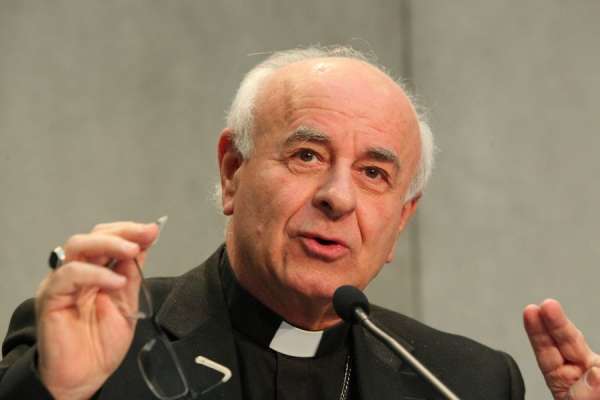The Pontifical Academy defends the coronavirus document that does not mention God

The Pontifical Academy for Life defended its latest document on the coronavirus crisis following criticism that it did not mention God.
A spokesman said on July 30 that the text "Humana Communitas in the era of the pandemic: premature meditations on the rebirth of life" was addressed to "the widest possible audience".
"We are interested in entering human situations, in reading them in the light of faith and in a way that speaks to the widest possible audience, to believers and non-believers, to all men and women of good will," wrote Fabrizio Mastrofini , which is part of the press office of the pontifical academy, led by archbishop Vincenzo Paglia.
The spokesperson's comments came in response to a stinging 28 July article in La Nuova Bussola Quotidiana, an Italian Catholic website founded in 2012.
The article, written by the philosopher Stefano Fontana, stated that the document did not contain a single "explicit or implicit reference to God".
Noting that this was the second text of the pontifical academy on the pandemic, he wrote: “Just like the previous document, this also says nothing: above all it says nothing about life, which is the specific competence of the pontifical academy, and it also does not say nothing Catholic, that is, anything inspired by the teaching of Our Lord. "
He continued: “One wonders who actually writes these documents. From the way these authors write, they appear to be anonymous officials of an anonymous institution of sociological studies. Their goal is to coin slogan phrases in order to capture a snapshot of unspecified processes that are currently underway. "
Fontana concluded: “There is no doubt: it is a document that will please many people of the global elite. But they will regret - if they read it and understand it - those who want the Pontifical Academy for Life to be effectively the Pontifical Academy for Life. "
In response, Mastrofini urged critics to read three texts related to the Pontifical Academy together. The first was the 2019 letter from Pope Francis "Humana Communitas" to the Pontifical Academy. The second was the Academy's March 30 note on the pandemic and the third was the most recent document.
He wrote: “As John XXIII said, it is not the Gospel that changes, it is we who understand it better and better. This is the work that the Pontifical Academy for Life is doing, in constant discernment: the faith, the Gospel, the passion for humanity, expressed in the concrete events of our time. "
“This is why a debate on the merits of the contents of these three documents, to be read together, would be important. I don't know, at this point, if philological 'accounting' works on how many times certain keywords occur in a text are useful. "
In a response published under Mastrofini's response, Fontana backed up his criticisms. He argued that the document had reduced the pandemic to "a problem of ethics and the functioning of institutions".
He wrote: “Any social agency could understand it that way. To solve it, if it were really just this, there would be no need for Christ, but it would be enough to have medical volunteers, European Union money and a government that is not entirely unprepared "